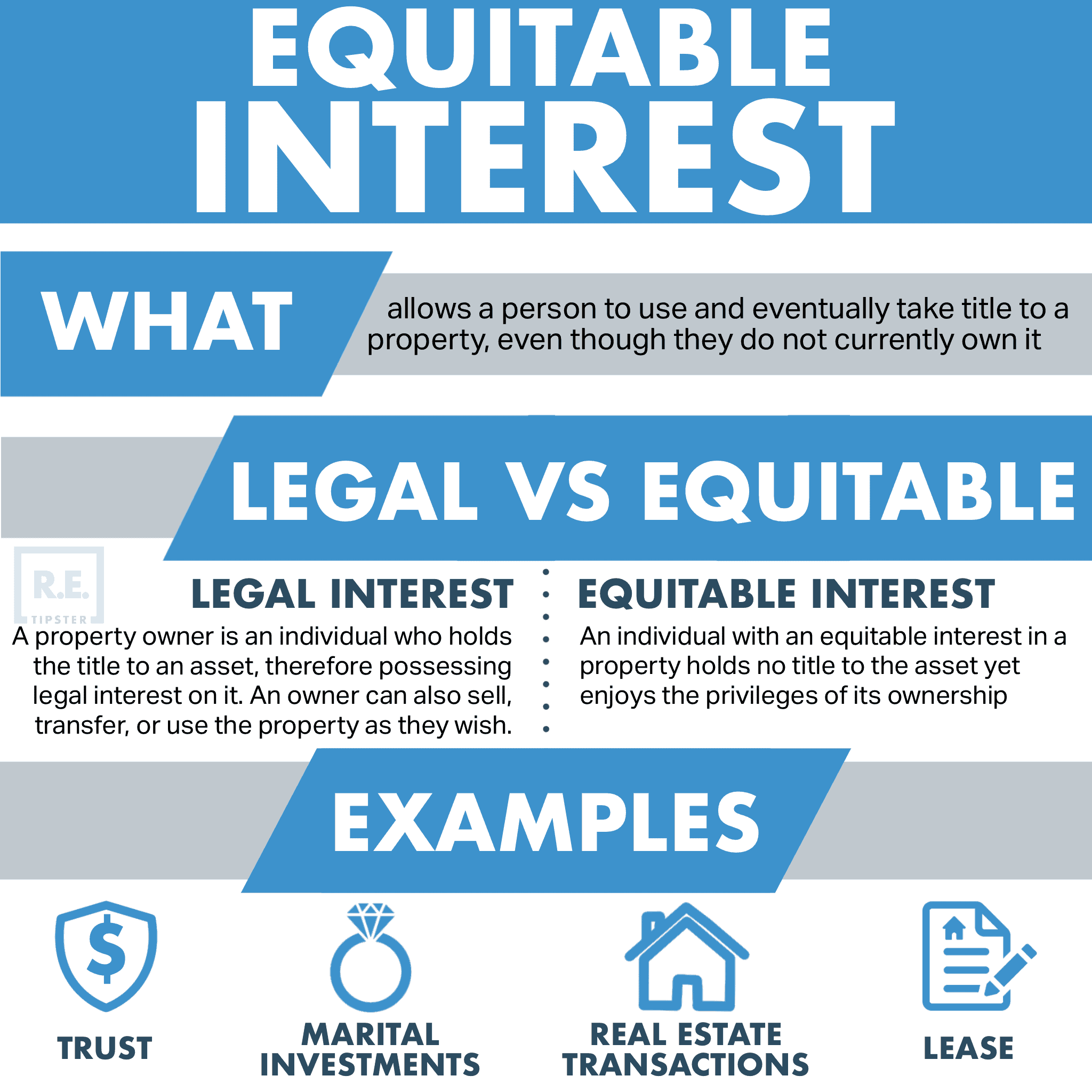What Is a Legal Title?
REtipster does not provide legal advice. The information in this article can be impacted by many unique variables. Always consult with a qualified legal professional before taking action.
Shortcuts
- A legal title refers to the right to property ownership, establishing a person or entity as the property’s legal owner, and can be enforced in a court of law.
- Understanding legal title is crucial in various transactions like buying or selling a property or asset, obtaining financing, or resolving disputes related to actual ownership.
- A title is a legal concept of ownership, physically represented by a deed.
- In real estate, a legal title applies to several kinds of property ownership, including fee simple, joint tenancy, and tenancy in common, among others.
How Does a Legal Title Work?
A legal title works by conferring the lawful and rightful ownership of property or assets to an individual or entity, its owner. It establishes the legal right of this owner to hold, use, and dispose of the property as they see fit. A property’s title is typically evidenced by a written document, such as a deed or certificate of ownership, which establishes the ownership rights and interests of the holder.
Understanding legal title is crucial in various transactions like buying or selling a property or asset, securing financing, or resolving disputes related to ownership. In these cases, a legal title that’s clear and free of encumbrances is important[1].
Note that a legal title is a concept of ownership, and a title deed is a document (i.e., a physical proof) that proves the title.
What Is a Land Law Title?
Land law title refers to the legal ownership of land and the rights that come with that ownership. This proves land ownership, including details like boundaries, easements or rights of way, and restrictions on land use[2].
It’s similar to a legal title, but a land law title refers explicitly to the legal ownership of land or real property and its associated rights and obligations. In other words, while the legal title can refer to any property or asset, a land law title is a more specific term for the legal ownership of land or real property.
Why Is a Legal Title Important?
A legal title is important because it provides official and formal recognition of a person or entity as the rightful owner of a property.
Below are other reasons[3] a legal title is necessary:
- Provides protection — A title protects the owner against claims by others who may have a competing interest in the property. It ensures that the legal owner can use, transfer ownership or sell the property without impediment.
- Enables transfer of ownership — When you purchase a property, a legal title facilitates the transfer of ownership from the previous owner to you. This gives you the legal right to use, transfer, or sell the property.
- Secures financing — Lenders typically require the legal title of a property when used as collateral for loan applications. Holding the legal title ensures they have a legal claim to the property in case of default.
- Ensures compliance with laws — Legal titles ensure compliance with laws related to property ownership. For example, zoning laws, building codes, and environmental regulations are enforced based on legal ownership.
How to Transfer a Legal Title
The title is usually transferred through a legal document, typically a deed. This document describes the property, identifies the parties involved, and includes any relevant terms and conditions of the transfer[4].
Another common method of title transfer is through a bill of sale. This document transfers ownership of personal property, such as vehicles, boats, and livestock. It includes a description of the property being transferred, the purchase price, and any warranties or guarantees included in the title agreement[5].
Transferring titles varies depending on the property type and the jurisdiction’s governing laws.
Examples of Ownership With Legal Titles
A legal title may describe several forms of ownership, depending on the use and context. Here are some examples (note that this list isn’t exhaustive):
Fee Simple
Fee simple is the most extensive and complete legal title to a person’s real property. It grants the owner an absolute and unrestricted right to the property as they see fit. In other words, it is the highest form of legal interest a property owner can have in real estate, as it gives the owner complete control over the property.
Life Estate
A life estate is a legal title that grants an individual the right to possess and use a property for a lifetime. It is created by a legal instrument, such as a will, trust, or deed, which transfers the property to a person known as the “life tenant.” After the person dies, the property returns to the original owner or someone else named in the deed.
Joint Tenancy
As the term suggests, joint tenancy is where two or more individuals share equal and undivided ownership rights. When a property is owned as a joint tenancy, each owner has the right to use and enjoy the entire property. Upon the death of one owner, the ownership automatically transfers to the surviving owners rather than to the deceased owner’s heirs[6].
Tenancy in Common
Tenancy in common allows multiple individuals to own a property or asset. In contrast to a joint tenancy which requires equal ownership interests and the right of survivorship, tenants in common can own different percentages of the property. They can pass their ownership interest on to their heirs upon death[7].
Community Property
Community property is a legal concept that applies to property ownership in a marriage or domestic partnership. It is a form of property ownership in which both partners have equal ownership and control over the assets acquired during the marriage, regardless of who purchased or earned them[8].
Leasehold
Leasehold is a legal title that grants the holder the right to use and occupy a property for a fixed period. In other words, it allows the leaseholder to use the property for a specific period, usually several years or decades, without owning it. The legal title holder of the property, also known as the freeholder or landlord, retains the ultimate ownership of the property.
Legal Title vs. Equitable Title
Both legal and equitable title are terms used in property law to describe different aspects of property ownership.
The legal title refers to the formal property ownership as recognized by law. The legal title holder can sell, lease, mortgage, or transfer the property and legally defend their ownership in court.
Equitable title, on the other hand, refers to an equitable interest in the property. This right confers the benefit to use and possess the property, even though another party holds legal rights to the land. This can occur in situations such as when a property is held in trust, where the trustee holds the legal title, but the beneficiary holds equitable title. In such cases, the beneficiary has the right to use and enjoy the property but does not have the power to sell or transfer it[9].
Sources
- Title. (n.d.) Cornell Law School. Retrieved from https://www.law.cornell.edu/wex/title
- Real Property Law. (n.d.) New York City Bar. Legal Referral Service. Retrieved from https://www.nycbar.org/get-legal-help/article/real-property-law/
- Niemann, F. Esq. (n.d.) The Importance of Legal Title and Beneficiary Designations. Hanlon Niemann & Wright, P.C. Retrieved from https://www.hnwlaw.com/elder-law/estate-planning-attorney/the-importance-of-legal-title-and-beneficiary-designations/
- What You Need to Know about Deeds and Property Transfer. (n.d.) Legal Nature. Retrieved from https://www.legalnature.com/guides/what-you-need-to-know-about-deeds-and-property-transfer
- Hayes, A. (2022, December 22.) Bill of Sale: Definition, How It Works, Absolute Vs. Conditional. Investopedia. Retrieved from https://www.investopedia.com/terms/b/bill-of-sale.asp
- Branan, R. (2022, April 6.) An Explanation of Ownership Rights in Property. NC State University Publications. Retrieved from https://content.ces.ncsu.edu/an-explanation-of-ownership-rights-in-property
- Tuovila, A. (2022, July 2.) 5 Common Methods of Holding Real Property Title. Investopedia. Retrieved from https://www.investopedia.com/articles/mortgages-real-estate/08/title-ownership-property.asp
- Kenton, W. (2023, February 26.) What Is a Title? Definition, How They Work, Types, and Examples. Investopedia. Retrieved from https://www.investopedia.com/terms/t/title.asp
- Wilson, S. (2022, June 13.) Legal Title Versus Equity Title. Study.com. Retrieved from https://study.com/learn/lesson/legal-vs-equitable-title-overview-differences-applications.html












